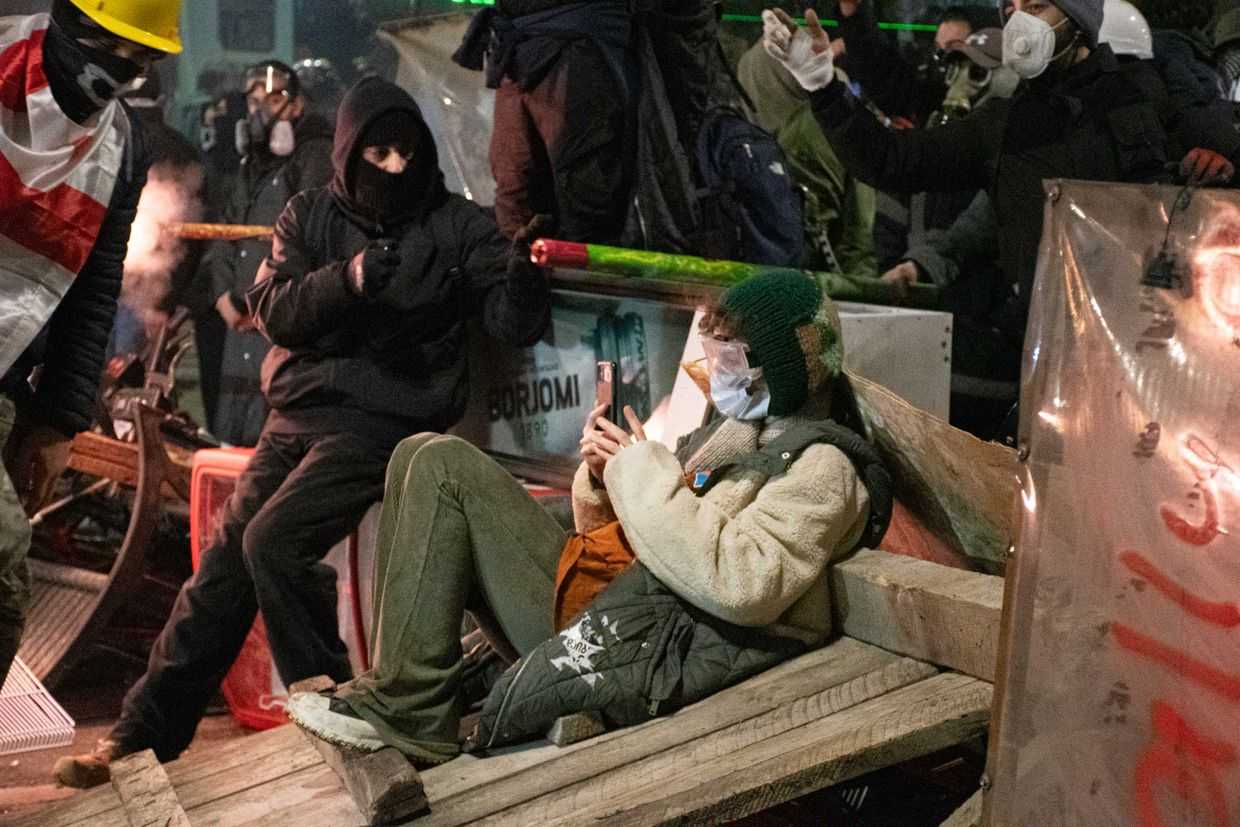
How social media has shaped Georgia’s protests
Georgia’s protests have been marked by their decentralised nature, with social media platforms leading the charge and acting as the lifelines of the pro-EU and anti-government movement.

Georgia’s protests have been marked by their decentralised nature, with social media platforms leading the charge and acting as the lifelines of the pro-EU and anti-government movement.

A CRRC Georgia survey found most Georgian respondents use more than one social media platform, with younger people and people living in cities using a greater variety of platforms. According to Georgia’s National Statistics Office, 96% of Georgia’s internet users use social media. While social media’s popularity in Georgia is clear, which platforms are most used and who uses the most platforms? According to the 2021 Caucasus Barometer survey, 68% of Georgians use the internet daily. The mo

A CRRC analysis of Georgian social media use has found that while Facebook remains the most popular social network in the country, almost half of young Georgians are on TikTok, with men and members of ethnic minority groups more likely to use the app. Despite being a relative newcomer to the social media market, the popularity of TikTok, the short-form video sharing platform, is rapidly growing as a tool for accessing and engaging in entertainment and niche communities, especially among young

Armenian and Georgian internet users have different perspectives on the effect of social media disinformation and its effect on their respective countries, with a CRRC analysis finding that Armenians are more likely to state that social media has a negative impact on their country. Disinformation — information that is intended to mislead — has in recent years been a widely-discussed topic globally, particularly in relation to its presence on social media. An analysis of Caucasus Barometer

In Azerbaijan, the recent conflict with Armenia was met with an unusual domestic reaction — though some have fallen in line with Baku’s militant narrative, many others are speaking out despite campaigns to persecute or silence them. In the early hours of 13 September, as the biggest conflict between Azerbaijan and Armenia since the Second Nagorno-Karabakh War began, Altay Goyushov posted on his Facebook page that ‘personally, I do not need Yerevan or Zangazur, and I unequivocally condemn t

Misinformation and disinformation have become common concerns around the world. Georgia is no exception, with the majority of the internet-using public concerned about fake news online. Caucasus Barometer 2021, an annual household survey run by CRRC, investigated a range of attitudes and behaviours related to social media in Georgia. 27% of those surveyed felt that social media had a negative effect on the country, 18% a positive effect, and 42% a neutral or mixed effect. Of those that th

With Georgia in an election year and traditional face-to-face campaigning out of the question given the COVID-19 outbreak, the importance of Facebook in Georgian politics is only likely to grow. CRRC-Georgia examines how this could affect political polarisation in Georgia. Facebook is an important part of Georgian politics. Political campaigns are fought, and public opinion thought to often be formed on the platform. The Government of Georgia and the ruling Georgian Dream party found it so